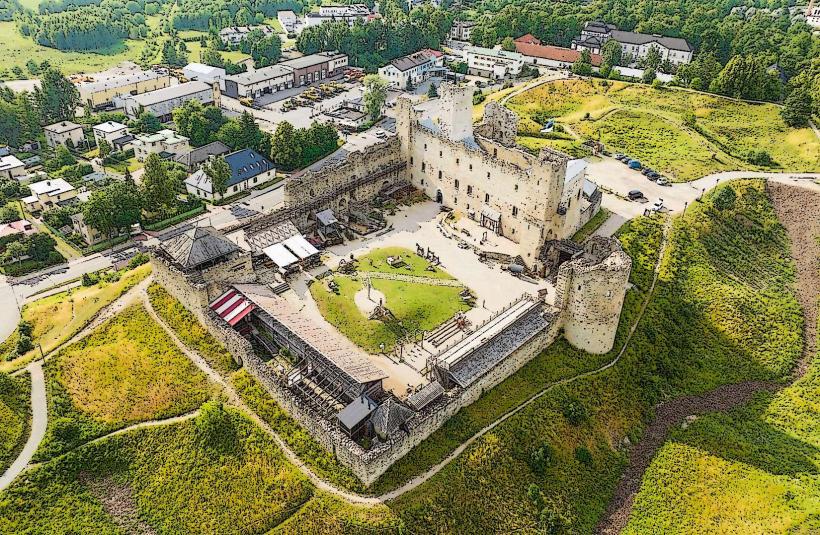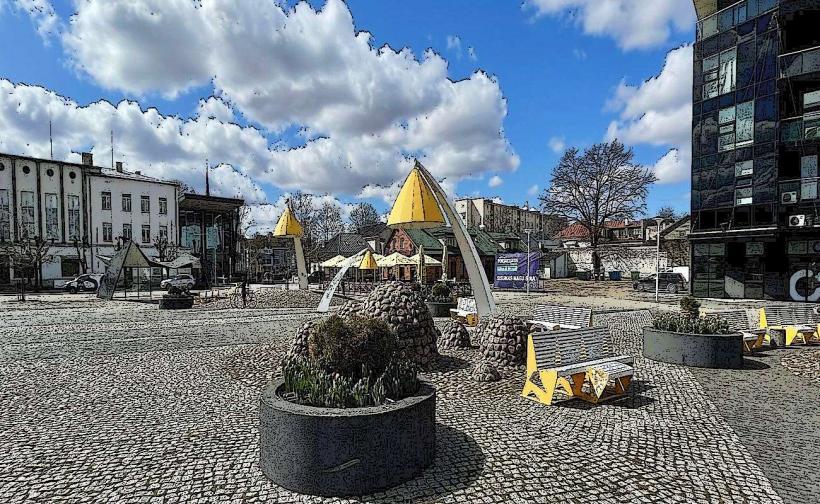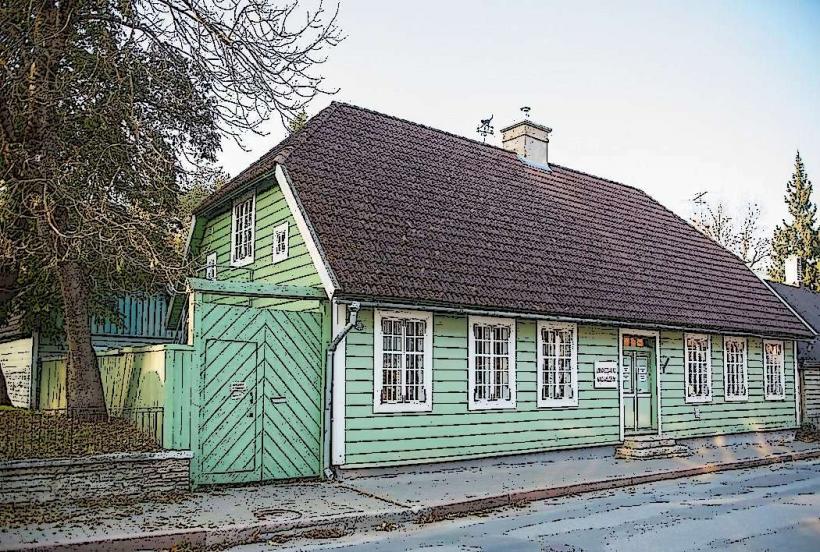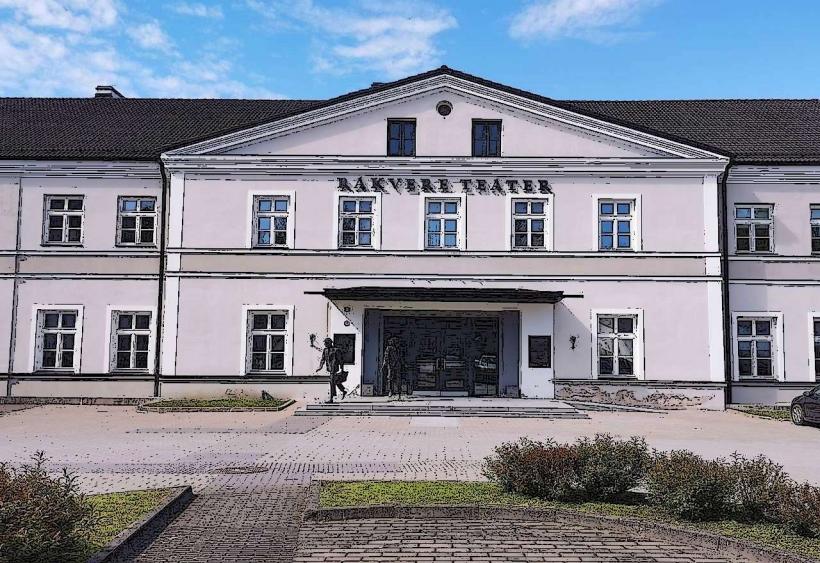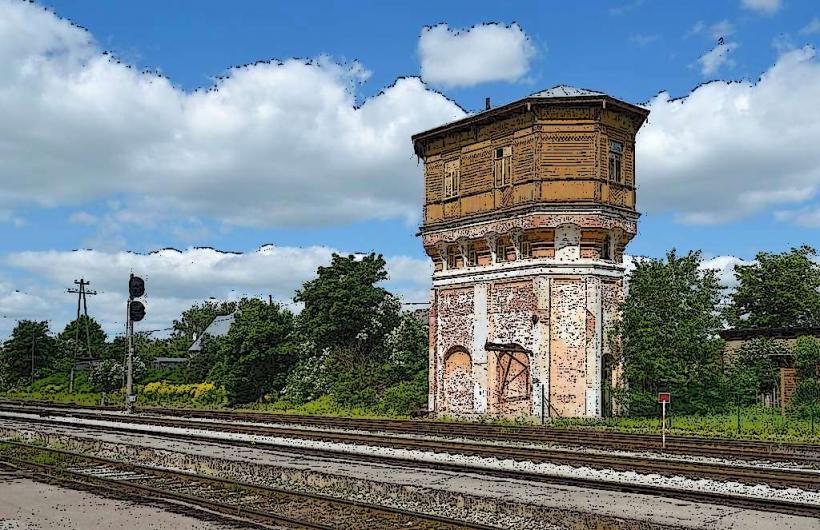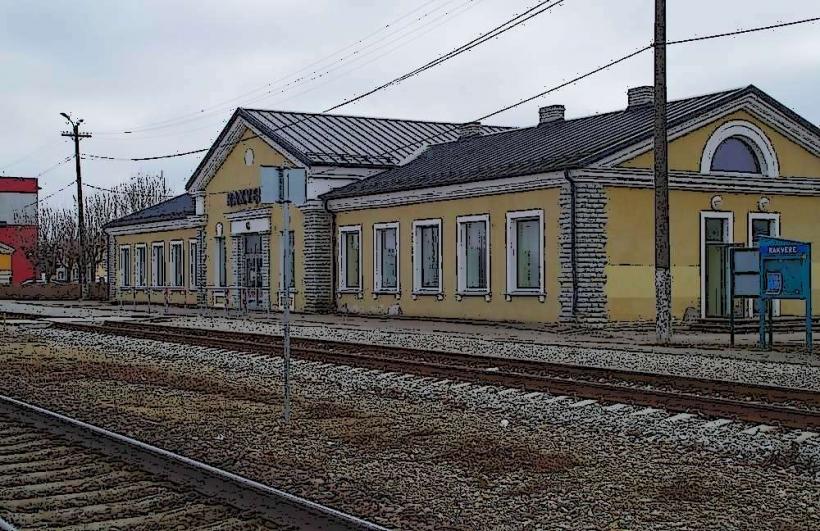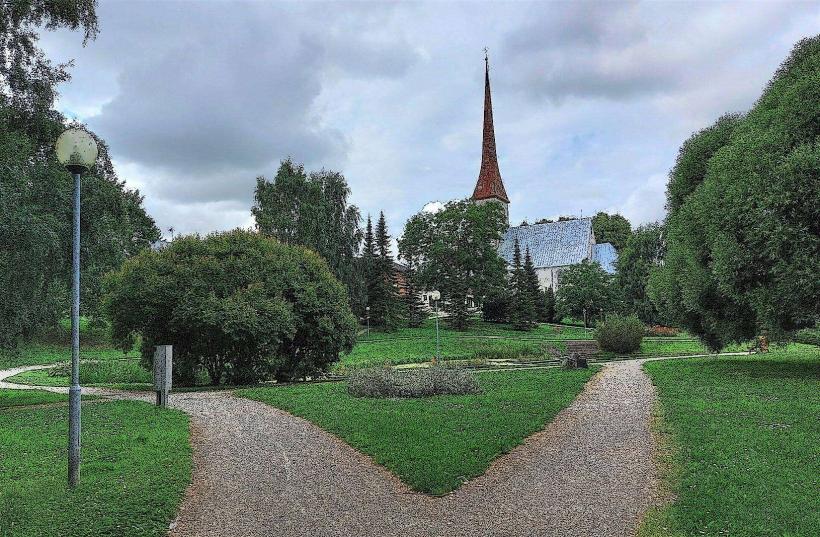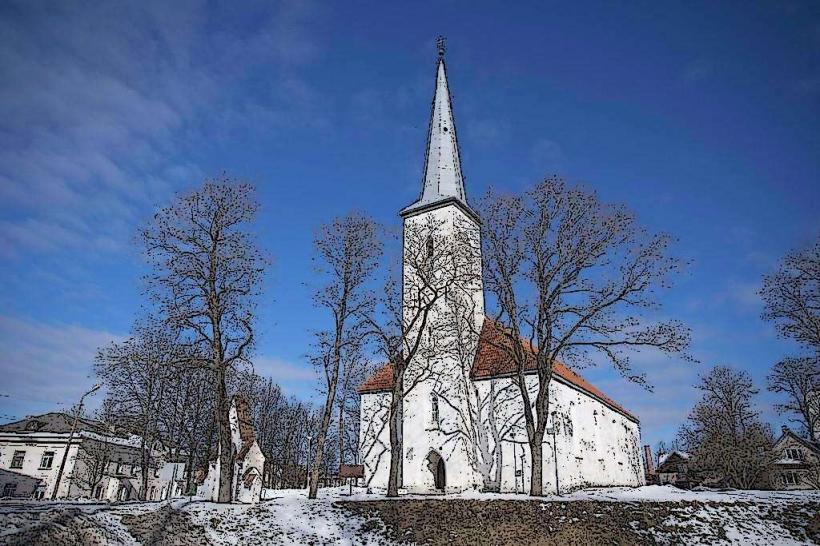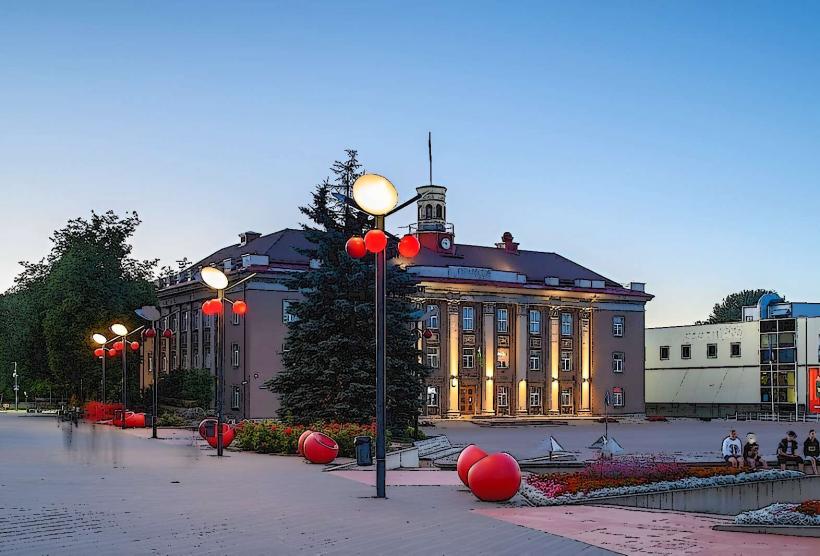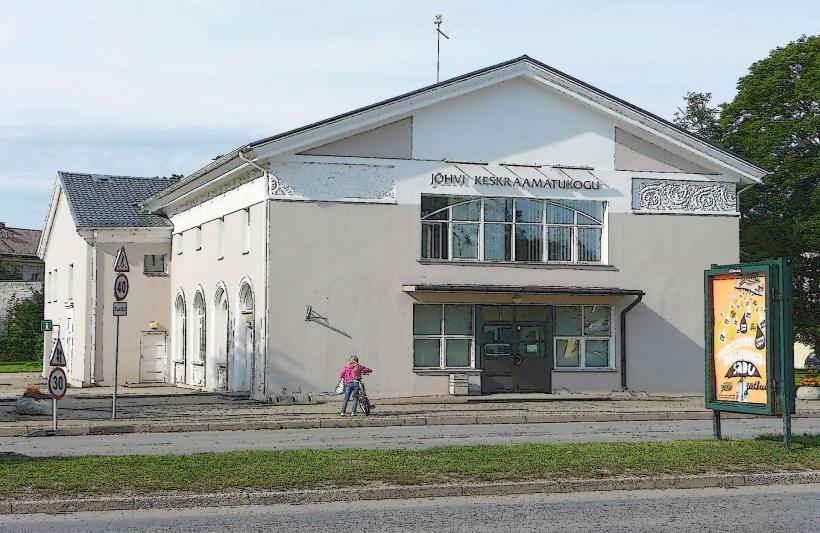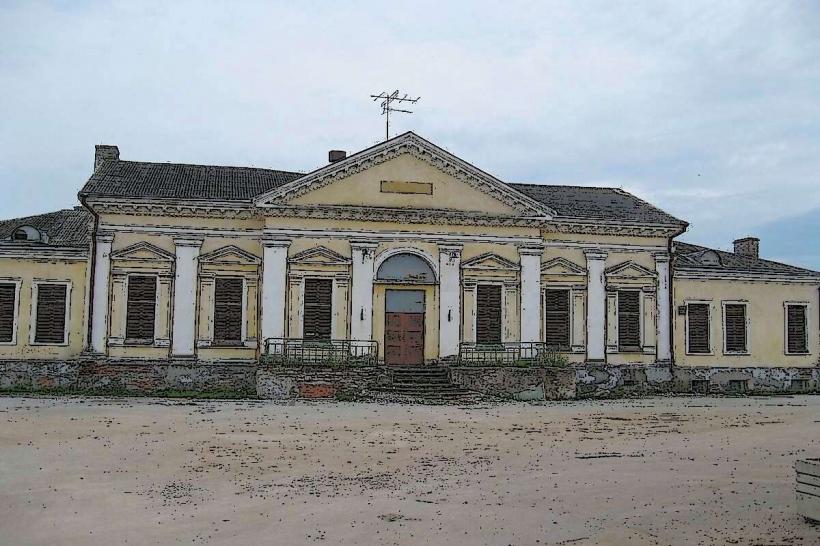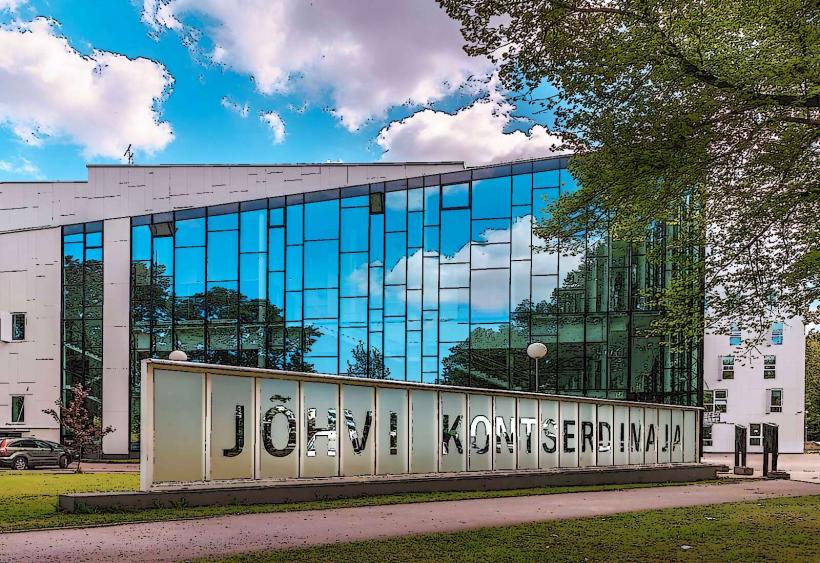Information
Landmark: Tarvas StatueCity: Rakvere
Country: Estonia
Continent: Europe
The Tarvas Statue (Tarvaskulptuur) is one of the most iconic landmarks in Rakvere, Estonia. Located in the central square of the town, the statue is a prominent cultural and historical symbol. It depicts a powerful, life-sized aurochs (the extinct wild ancestor of domestic cattle), which is known as the "Tarvas" in Estonian. The sculpture not only represents the prehistoric connection to the region but also reflects the town's deep cultural identity and its link to ancient Estonian mythology and nature.
History and Significance
The Tarvas is a symbol of strength, resilience, and the natural heritage of the area. The aurochs once roamed throughout Europe, including the Estonian region, until its extinction in the 17th century. In ancient times, the aurochs was a central figure in various mythologies, including the Estonian folklore, where it was often regarded as a mighty and revered animal.
The Tarvas Statue was created to commemorate this connection to the ancient past and the role of the aurochs in shaping local culture. The statue was erected in 2002 as part of the revitalization of Rakvere’s town center and to enhance its cultural appeal.
Design and Features
The Tarvas Statue was designed by the sculptor Tauno Kangro, who is known for his work with monumental sculptures. The statue is made of bronze, standing around 3 meters tall and 4.5 meters long, making it an imposing and eye-catching structure. The Tarvas is depicted in a dynamic pose, as if charging forward, symbolizing power and vitality.
Some notable features of the sculpture include:
Life-Size Representation: The Tarvas statue is life-sized, adding to its realism and the sense of strength and majesty that the aurochs would have had when it roamed the forests and plains of ancient Estonia.
Detailing and Expression: The statue is highly detailed, capturing the muscular build of the aurochs, from the powerful shoulders to the distinctive horns. The expression and posture convey the wild nature of the animal, reinforcing its historical and mythological significance.
Historical Symbolism: The sculpture is a reminder of the region's natural past and its connection to the wild animals that once lived there, including the aurochs, which are important symbols in Estonian folklore and mythology.
Role in Rakvere
The Tarvas Statue is not only a work of art but also a symbol of Rakvere itself. It has become one of the town's most recognizable features and a popular point of interest for both locals and visitors. As the statue stands in the Rakvere Central Square, it acts as a modern landmark while also symbolizing the town's deep connection to its natural environment and heritage.
In addition to its artistic and historical value, the statue is also used for cultural and social purposes. It has become a popular spot for photos, and the surrounding area is often used for events and public gatherings. The statue plays a part in Rakvere's identity as a town that blends its historical roots with modern life.
Conclusion
The Tarvas Statue in Rakvere is a powerful and evocative symbol of Estonia's connection to its ancient wildlife and cultural heritage. As a representation of the extinct aurochs, the statue serves as a reminder of the natural history of the region and the strong presence that the Tarvas had in Estonian folklore. The sculpture, with its lifelike details and imposing presence, has become one of Rakvere’s most important landmarks, symbolizing both the past and the vitality of the modern town. It is a must-see for visitors to Rakvere and an important cultural treasure for the Estonian people.

